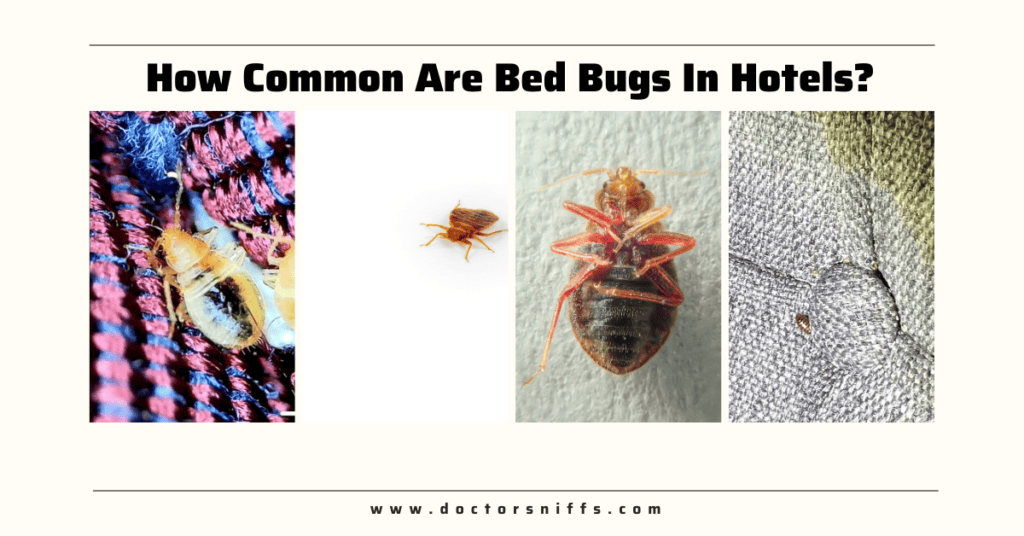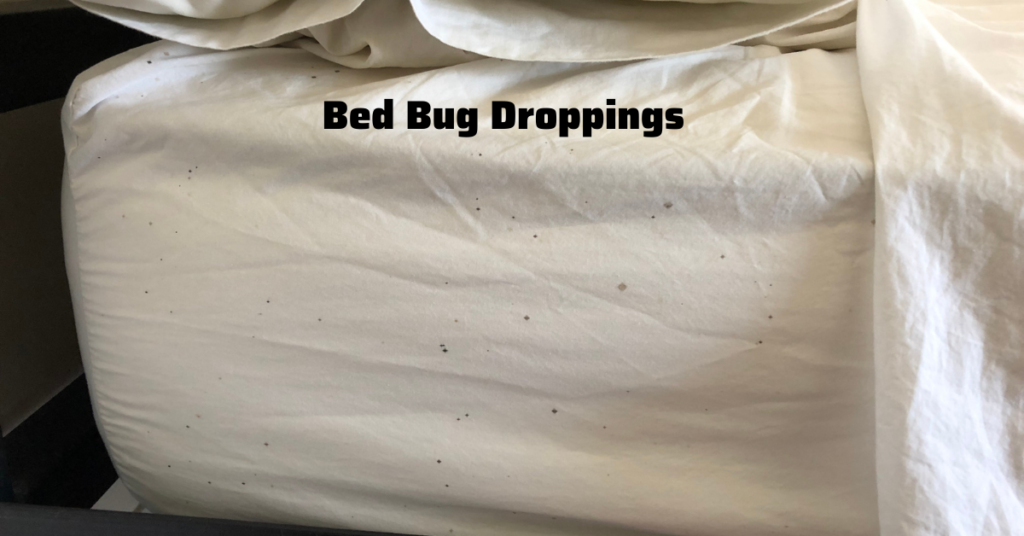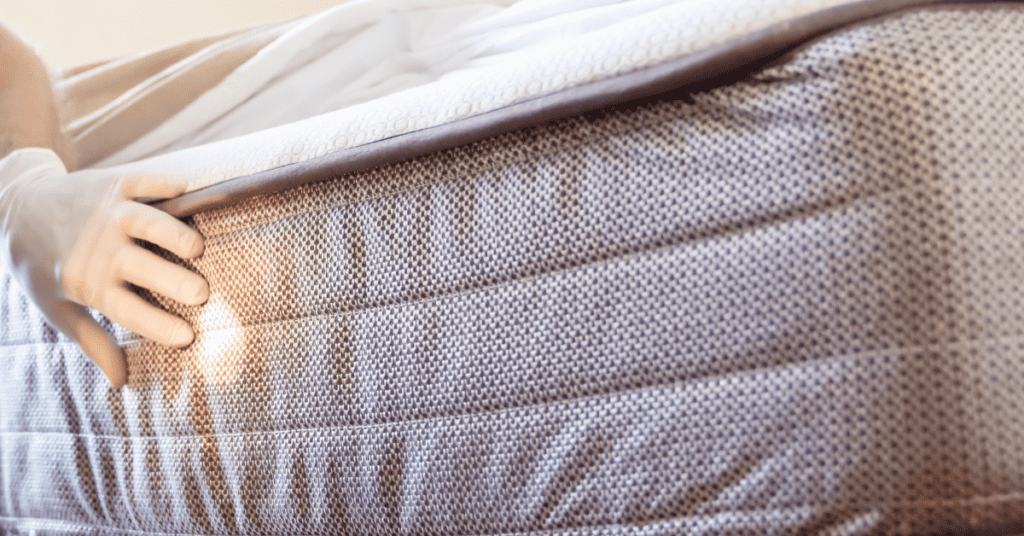Do all hotels have bed bugs, and just how common are bed bugs in hotels? While it’s impossible to say that every single hotel is entirely free of these bed bugs, it’s essential to recognize that most hotels take extensive measures to prevent and address the issue of bed bugs.
These measures include routine inspections, staff training, and quick responses to reported incidents. Bed bugs can sometimes still find their way into even the cleanest establishments, as they can hitch a ride on luggage, backpacks, clothing, or other personal belongings.
To protect yourself and ensure a relaxing stay, it’s a good idea to be aware of the signs of a bed bug infestation and to take a few precautionary steps when you check into your hotel room.
Above all, always treat your luggage and belongings when you return home, especially if you do not react to bed bug bites.
Did you know that 30% of people do not know bed bugs are biting them? They do not know because their skin has no red bite mark. Then, the rest of the people get varied responses to the bites, and some get delayed reactions. So, your bites may only show up once you return home.
Do all hotels have bed bugs? Keep reading to learn more!

Stop here and read this article before proceeding: How long does it take bed bug bites to show up?
Are All Hotels Bed Bug Infested?
Yes, most hotels have had bed bugs at one time or another. However, most hotels, especially well-established ones, take measures to ensure their premises are bed bug-free. They invest in regular inspections, pest control treatments, and staff training to keep their guests and rooms comfortable and safe.
However, knowing that even the cleanest and most upscale hotels can occasionally face bed bug problems is essential. But how common are bed bugs in hotels?
Bed bugs are not exclusive to low-end accommodations; they can hitchhike into any hotel by hiding in luggage, clothing, or personal belongings. Thus, always remain vigilant and follow some basic precautions when staying at hotels:
- Inspect the room, especially the bed, couch, headboards, and all furniture, for any bed bug signs, such as reddish-brown insects or tiny black fecal spots. So, how common are bed bugs in hotels? Almost every hotel has probably had them at one time or another.

- Keep your luggage isolated on luggage racks or hard surfaces, away from carpets or upholstered furniture. However, if bugs are in the room, you need more than this to protect you.
- Seal your dirty clothes in plastic bags before placing them in your suitcase.
- Upon returning home, unpack and launder your belongings promptly, and inspect your luggage for any signs of hitchhiking pests. Learn more about how to get rid of bed bugs in luggage.
- Act as if the hotel may have had an issue, and always put your clothing through the hot dryer as soon as you get home.
- If you saw bed bugs at the hotel and wondered, “How long before I know if I brought bed bugs home?” the answer may vary depending on whether you react to the bites.
How Bed Bugs Infest Hotels
How do bed bugs get in?
Bed bugs are sneaky little animals that can infest even the cleanest hotels. Learn more: where do bed bugs originate from?
They can hitch a ride in guests’ luggage, clothing, or personal belongings. When guests inadvertently introduce bed bugs into a hotel room, they quickly find hiding spots and start to reproduce.
Where do bed bugs hide in hotels?
Luckily, there are a few things to know about how these pests operate in hotels. Bed bugs typically reside in cracks and crevices in furniture, baseboards, and electrical outlets. They prefer to be close to their food source – people. As a result, they often live in or near the bed, including the mattress, box spring, bed frame, and headboard.
Behavior
Bed bugs become more active at night, coming out of hiding to feed on the blood of sleeping guests. During this time, they can also move to other areas of the room or migrate to adjacent rooms through small cracks and crevices in walls, floors, and ceilings.
Take the time to learn how to check for bed bugs.
Do all hotels have them?
Hotels with frequent turnover of guests are at higher risk for infestation, as there are more opportunities for bed bugs to be introduced. Think hotels near airports or tourist hot spots. Hotels with shared common areas or used furniture may also face an increased risk of bed bug problems.
If you find bed bugs in your hotel, immediately follow our guide on what to do if your hotel has bed bugs.
As a hotel owner, to minimize the risk of bed bugs in your hotel:
- Regularly inspect rooms for any signs of bed bug activity, such as minor reddish-brown bugs, black fecal spots, or tiny white eggs. You can hire bed bug detection dogs, like Doctor Sniffs, to help sniff out the bugs.
- Train hotel staff to recognize and report any bed bug sightings.
- Use mattress and box spring encasements to make it more difficult for bed bugs to go unnoticed and establish themselves.
- Implement an integrated pest management plan that includes periodic inspections by a certified K9 team and proactive treatments by a professional exterminator.
- Respond promptly to any reports of bed bug incidents, including thorough inspections, treatments, and follow-ups to ensure you resolve the problem.
Understanding how bed bugs infest hotels and taking preventative measures can ensure a more comfortable and restful stay for yourself and other guests.
Prevention Methods Employed by Hotels
As a guest, it’s reassuring to know that most hotels take bed bug prevention seriously. They employ several effective methods to minimize the risk.
You also have a right to call the hotel to ask about their bed bug policies. Here is a list of the most common prevention practices that you can expect from hotels:
- Regular Inspections: Hotels conduct routine and thorough inspections of their rooms to check for signs of bed bugs. Checking for signs includes inspecting mattresses, bed linens, and other furniture. Sometimes, a hotel can also have a flea issue. Learn how to check for fleas in a hotel.

- High Standards of Cleanliness: Maintaining a high level of cleanliness is crucial in the fight against bed bugs. Hotels invest in professional cleaning services to ensure all areas, including guest rooms and public spaces, are clean and free from potential infestations. Vacuuming the crevices around a headboard or bed frame can go a long way!
- Staff Training: Train hotel staff to identify bed bugs and to be vigilant for any signs of their presence. Be sure they also receive guidance on the various preventive and control measures to reduce the likelihood of infestations spreading.
- Prompt Response: If a hotel becomes aware of a bed bug issue, they act quickly to resolve it. This includes immediate evacuation, treatment of the affected room, and contacting a pest control specialist.
- Preventative Treatments: To stay proactive, some hotels utilize preventative treatments, such as mattress encasements, creating a difficult barrier for bed bugs to penetrate. In addition, they may use long-term residual sprays like Aprehend or heat treatments in high-risk areas.
Remember, while no hotel can guarantee a 100% bed bug-free environment, you can take comfort in knowing that these proactive steps are taken to protect your stay.
As a guest, you can also do your part in checking your luggage and personal belongings before and after your hotel stay to prevent bringing these pests into your home.
What to Do If You Encounter Bed Bugs in a Hotel
Finding bed bugs in your AirBNB or hotel room is an unsettling experience, but don’t panic. It’s important to stay calm, focused, and follow these steps to protect yourself and avoid spreading the infestation.
First, gather and protect your belongings. Remove your luggage and clothing from the vicinity of the suspected infestation and place them in sealed plastic bags. Isolating things will help minimize the risk of bed bugs hitching a ride back to your home.
Next, document the infestation. Please take photos or videos of the bed bugs and any evidence they leave behind, such as small, blackish spots on the sheets. This documentation will be helpful when informing the hotel staff and requesting a refund or compensation.
Report the issue to the hotel immediately. Notify the front desk or management, and calmly present your documentation of the problem.
Request a new room, preferably one not directly adjacent to, above, or below the infested room, to minimize the risk of continued bed bug exposure. Hotels generally appreciate the heads up and are more likely to take appropriate action to resolve the situation.
After you move into a new room, inspect the new space thoroughly. Check for signs of bed bugs, by focusing on the mattress, headboard, and bedside furniture.
Look for signs like reddish-brown insects, shed bed bug exoskeletons, or fecal spots. Before unpacking your belongings, be vigilant and ensure you’re fully satisfied with the new accommodation.

Lastly, follow up and protect yourself at home. When you return from your trip, launder your clothes in a hot dryer and use a bed bug heater to kill any lingering bugs or eggs.
Scrutinize your luggage, and consider vacuuming or using a handheld steamer as an added precaution. Steamers help minimize the risk of bringing unwanted pests into your home.
Identifying Bed Bugs
You might be wondering how to identify bed bugs in a hotel room. Bed bugs are small, flat, oval-shaped insects. They are reddish-brown, and adults are between 5 and 6.5mm. Check out these bed bug pictures.
Additionally, they can be challenging to spot since they hide during the day, but you can identify their presence with a keen eye.
First, inspect the bed, especially the seams and folds of the mattress, the box spring, and the bed frame. You can also find bed bugs in the headboard, so check there.
Look for live bed bugs, eggs, their shed skins, or tiny, dark droppings, which can indicate an infestation.
Since bed bugs aren’t limited to the bed area, expand your search to the nightstands, upholstered furniture, and even behind picture frames on the walls. Check any crevices and seams in these areas for signs of bed bugs or their 1mm, pearly white eggs.
Remember, you can find bed bugs in even the cleanest environments, so encountering them doesn’t necessarily mean the hotel is unclean. If you find any signs of bed bugs, or other pests, notify the hotel staff immediately and request a different room or consider staying at another hotel.
Your Role in Preventing Bed Bug Infestation
As a traveler, you play a crucial role in preventing bed bug infestations in hotels. With a few simple steps, you can reduce the chances of encountering bed bugs and ensure a comfortable stay. Here are some ways you can help prevent bed bug infestations during your hotel stays:
When arriving at your hotel room, check for any signs of bed bugs. Inspect the bed, mattress seams, headboard, and other potential hiding spots. Look for small reddish-brown insects, tiny white eggs, and black or brown fecal spots.
Keep your luggage off the floor and away from the bed. Placing your suitcases on a luggage rack or elevated surface can help prevent bed bugs from hitching a ride on your belongings. Avoid using the hotel room’s dressers and closets, as bed bugs can hide there.
Always store your clothing in sealed bags, such as plastic zipper bags, to prevent bed bugs from getting into your clothing. Sealing is a great way to keep your clothes safe and clean, regardless of whether you find bed bugs in your hotel room.
If you find any signs of bed bugs, notify the hotel management immediately. They should take actionable steps to address the issue and help ensure your stay is a pleasant one. Do not hesitate to request a room change if necessary.
Finally, when you return home, inspect and wash your luggage and belongings before bringing them inside your residence. Doing this extra step can help prevent the spread of bed bugs in your home.
By following these steps, you can play an essential role in preventing bed bug infestations in hotels and ensure a more enjoyable and bug-free travel experience.
Consequences of Ignoring Bed Bugs As A Hotel Owner
If you own or manage a hotel, Ignoring bed bugs can lead to a plethora of problems. Apart from causing discomfort to your guests, these tiny pests can harm your business’ reputation.
When guests discover bed bugs in their room, they will likely share their negative experiences with friends and online review platforms. Bad bed bug reviews can damage your hotel’s image, making potential guests hesitant to book a stay with you. Moreover, negative reviews can be challenging to recover from, as people usually check review sites before making a reservation.
Another consequence of not addressing bed bugs is the potential for financial losses. Repeated guest complaints about bed bugs may result in refunds or compensation.
Additionally, if the infestation worsens, you might have to close the affected rooms significantly to allow for thorough pest control treatments. In the long run, this loss of revenue can severely impact your hotel’s bottom line.
Lastly, bed bugs can cause psychological issues for your guests. These tiny insects feed on human (and other animal) blood and can leave behind itchy, red bumps on the skin and lasting psychological damage.
Some individuals may develop allergic reactions or even infections due to excessive scratching. These can lead to dissatisfied guests, and potential legal issues should the guests hold your hotel responsible for their health concerns.
To avoid these consequences, it’s essential to regularly inspect your hotel for bed bugs and take immediate action to eliminate any infestations. Being proactive in preventing and addressing bed bug issues can save your hotel’s reputation, finances, and guests’ well-being.
Frequently Asked Questions About: How Common are Bed Bugs in Hotels
How can I check for bed bugs in a hotel?
When you enter your hotel room, start by inspecting the bed. Remove the bed sheets and check the mattress seams, box springs, dust ruffle, and headboard.
Look for small, dark spots, shed skins, and live bed bugs. You can also check other common hiding spots like behind picture frames, curtain folds, and drawers. Using a flashlight, even in well-lit areas, is a good idea to spot bed bugs more quickly.
Do upscale hotels also get bed bugs?
You can find bed bugs in budget accommodations and luxury hotels. They can easily hitch a ride in a guest’s suitcase and infest a room. It’s important to remember that bed bugs do not necessarily indicate a lack of cleanliness or poor management.
What steps do hotels take to prevent bed bugs?
Many hotels have preventive measures, such as regular K9 inspections, professional exterminations, and employee training to spot early signs of infestation. They may also place encasements on mattresses and box springs to reduce hiding spots and use heat treatments to kill bed bugs more effectively.
What should I do if I find bed bugs in my hotel room?
If you discover bed bugs in your hotel room, immediately notify the front desk and request a new room. Ensure the new room is not adjacent to or directly above or below the affected room, as bed bugs can travel through walls and floors. Taking photos of the evidence as documentation is also a good idea.
Are there any hotel chains known for bed bug problems?
While no specific hotel chains are widely known for bed bug problems, it’s essential to remember that any hotel, regardless of reputation or star rating, can experience bed bugs. Always inspect your room and follow the earlier precautions to protect yourself from bed bugs.



